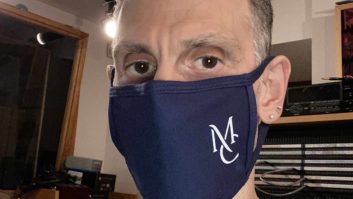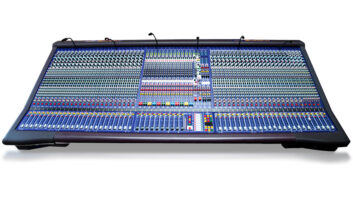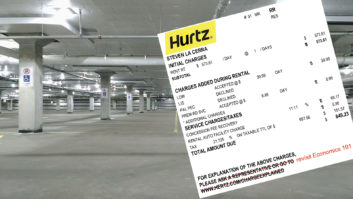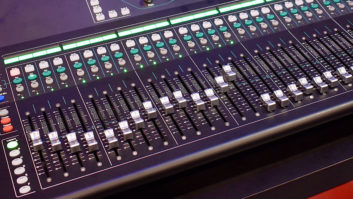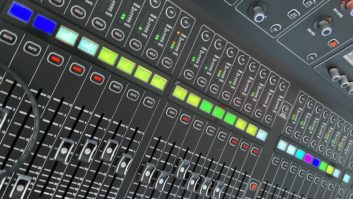
I’m not a gambler, but I’m willing to bet that anyone working in the concert or recording industries has at least once (if not more) faced a situation where some kind of project absolutely had to be completed in time for an unrealistic deadline, resulting in an “overnighter.”
Whether it be mixing a record, making a load-in at some ridiculous hour of the morning, or taking brutally early flights to simply get to a gig in another difficult-to-reach city, we’ve all been put in situations where the work hours are crazy and sleep simply has to wait. I certainly recall doing my share of all of the above, much in my distant past and some as recent as last year. I tell myself, “I’ll catch up on sleep when I get home,” or some similar fable that helps get me through a rough patch.
The brutal truth is that there’s no such thing as catching up on sleep, and earlier this month, the findings of a study were released correlating work schedules deviating from “standard” daytime work hours and poor health decades later in life. The report, “How Our Longitudinal Employment Patterns Might Shape Our Health As We Approach Middle Adulthood,” was undertaken by Dr. Wen-Jui Han, professor at the Silver School of Social Work at New York University, and was published by the online journal PLOS ONE.
Han collected data from more than 7,300 Americans across the country between the ages of 14 and 22 who were part of the National Longitudinal Survey of Youth 1979. Participants were interviewed every year until 1994, and after that every two years, with a response rate of 96% during the early survey years, and approximately 77% in more recent years. The report’s definition of a “standard” work schedule was described as starting 6:00 AM or later and ending by 6:00 PM. Evening work schedules were defined as beginning at 2:00 PM or later and lasting until midnight, and night-time schedules started at 9:00 PM and ended by 8:00 AM.
Mix Live Blog: Luke Combs ‘Growin’ Up and Gettin’ Old’
The findings of the study are simultaneously horrifying yet unsurprising to anyone working in a gig-based industry. The nuts-and-bolts conclusion of the study is that people with work patterns involving any degree of “volatility”—i.e., significant variation and variability of work schedule—were more likely to have fewer hours of sleep per day, poorer sleep quality, reduced physical and mental functions, and a higher likelihood of reporting poor health and symptoms of depression at age 50 than people who maintained stable, “normal” work schedules in their twenties and thirties. Yikes.
The concept is not exactly new. Shift Work Sleep Disorder (SWSD) has long been identified by the medical and scientific communities as a disorder that affects shift workers, the symptoms of which are insomnia or acute sleepiness while on the job. According to Han’s data, approximately one-third of the global workforce has a work schedule that qualifies as volatile.
The average worker in the concert or recording industry almost never works normal hours, and, although they may have a consistent “shift” over the course of a tour, is probably working more like 8:00 AM to 11:00 PM, or later. If you have trouble sleeping in the bunk of a moving bus or while wedged into the seat of an airliner, you’re in serious trouble. Couple this with the lack of many of the “luxuries” provided by normal jobs (health insurance, sick pay, paid vacation, etc.)—all things that allow workers to take a deserved break—and you have a recipe for bad health later in life.
As I get older, I am unfortunately observing the toll this is taking upon my colleagues: back trouble from lifting too many Marshall stacks when they were in their “indestructible twenties,” poor sleep habits that can be traced back to far too many overnighters, depression, and sadly, an increasing number of friends and acquaintances suffering heart attack or stroke.
Those of us who are past the age of 50 can’t go back and change what we did in our early years, but we can get the message out to the younger generation that what they’re doing now will affect their health in the future. It’s going to be a hard sell because many young guns think (as we did), “Ah, what does this old guy/gal know anyway? I’m fine on two hours of sleep.” I’ll certainly be having a conversation with my students about this next week, in an effort to help them understand the value of taking care of themselves in their early work years. I don’t want the quip “I’ll sleep when I’m dead” turning into a truth.

